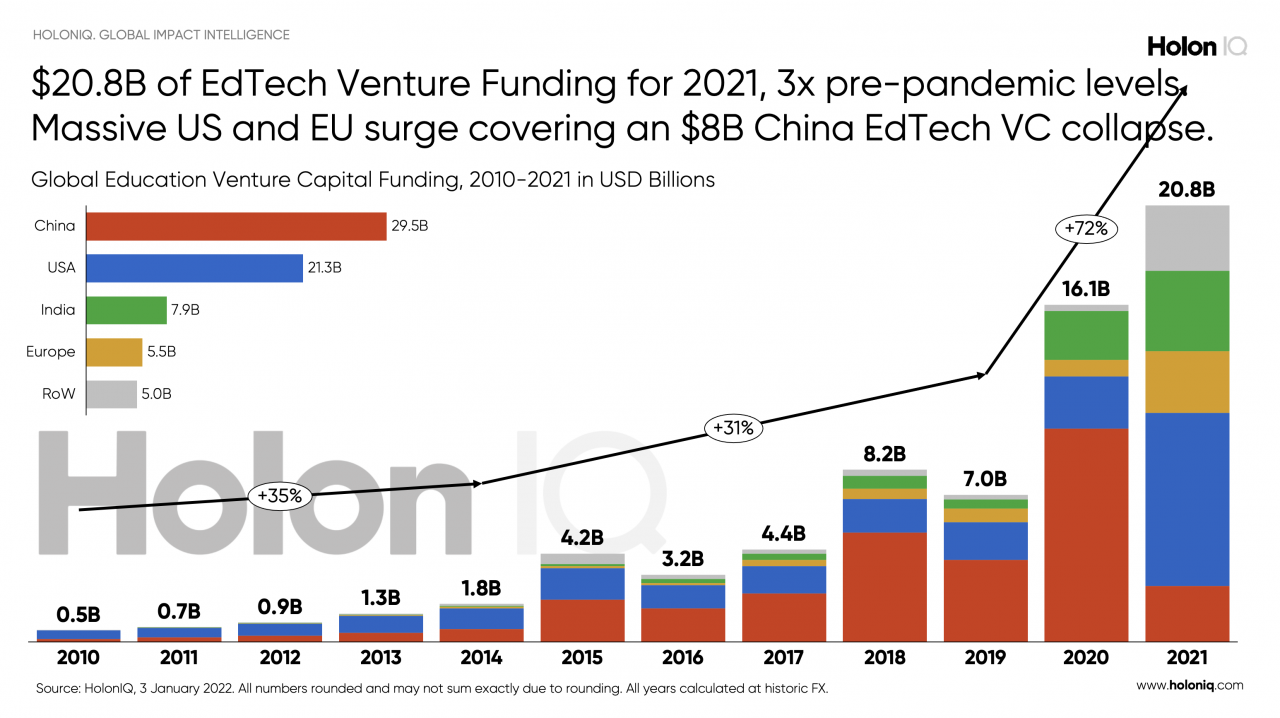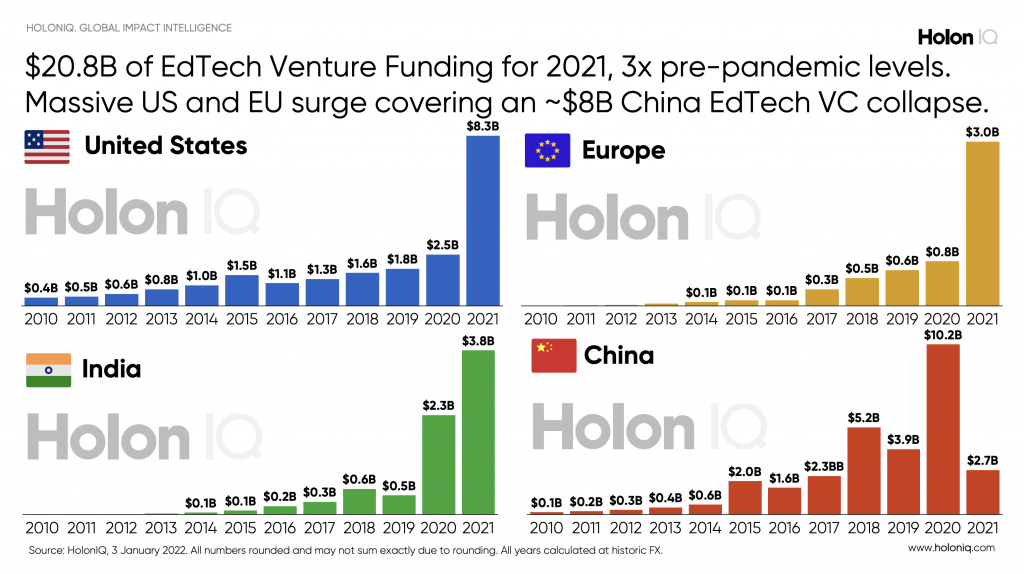Global Venture Capital Investment in Ed-Tech Soared in 2021, Hitting $20B

The education industry saw another groundbreaking year when it comes to venture capital funding, reaching three times pre-pandemic investment levels in 2021, according to a new report.
Globally, more than $20 billion was invested into education technology in 2021, according to the annual report by Holon IQ, a global research and intelligence firm based in Australia.
That’s an increase from $16 billion in 2020, which was also a record-breaking year.
“It was clear by mid-2021 that 2020 was just the start of a significant wave of venture capital looking to invest in the future of education,” Patrick Brothers, co-founder and co-CEO of Holon IQ, said in an email. “The U.S. and European market acceleration … has established a new level of funding that will drive major innovation of the next three to five years.”

In the U.S., venture funding for ed tech surged from $2.5 billion in 2020 to $8.3 billion in 2021, according to the report. Across Europe, there was also strong growth: Investment rose from less than $1 billion in 2020 to $3 billion in 2021.
India also remains a major player in the industry in 2021 after surpassing Europe’s total ed tech investment in 2020. The country invested $3.8 billion in 2021.
These increases in funding were enough to offset a collapse in investment in China — previously a global leader in ed tech funding — caused by new government-initiated education regulations.
Flow of Funding in China Plummets
In 2021, China’s investment in ed tech dropped to $2.7 billion, Holon IQ reported, compared to $10.2 billion in 2020.
Many education companies have sought to invest in China’s enormous market over the past few years, though some of that enthusiasm has dampened recently, as new regulations generally banned the use of foreign education materials in Chinese public schools and in many cases shut down for-profit tutoring.
Prior to COVID, China also dominated the landscape of ed tech unicorns — startups that are valued at over $1 billion.
But 2022 saw 17 new unicorns — mostly from the U.S. — a shift that Brothers called a “game changer.”

While education markets in Europe and the U.S. are expected to continue to strengthen, overall, it will be difficult for global investment for 2022 to continue at the same pace the market has seen over the last two years, Brothers said.
China’s investment in education may continue to fall in 2022, Brothers said. Although a shift in focus toward vocational and up-skilling technology may stabilize the country’s level of investment in education.
There’s also the possibility that India will follow China’s lead and regulate ed-tech more aggressively, Brothers said, which would affect global investment levels.
“India has been driven by a small number of major players,” he said. And while early stage investment continues to accelerate, “we may see India moderate over the next few years as those major [players] seek to exit and the local market consolidates.”
Still, Brothers said it’s important to note that the industry will continue to see the outcomes of this two-year wave of funding for years to come, as hiring, acquisitions, and integrating new products takes time.
“It is exciting to see ed tech receive the attention and funding it needs and deserves, to supports schools, colleges, universities, and, most importantly, learners around the world on such a critical digital transformation.”
Follow EdWeek Market Brief on Twitter @EdMarketBrief or connect with us on LinkedIn.
Image credit iStock/Getty Images Plus
See also:
